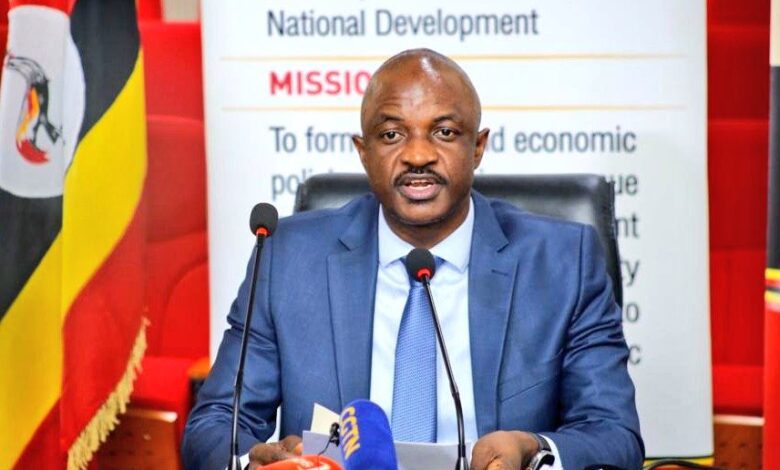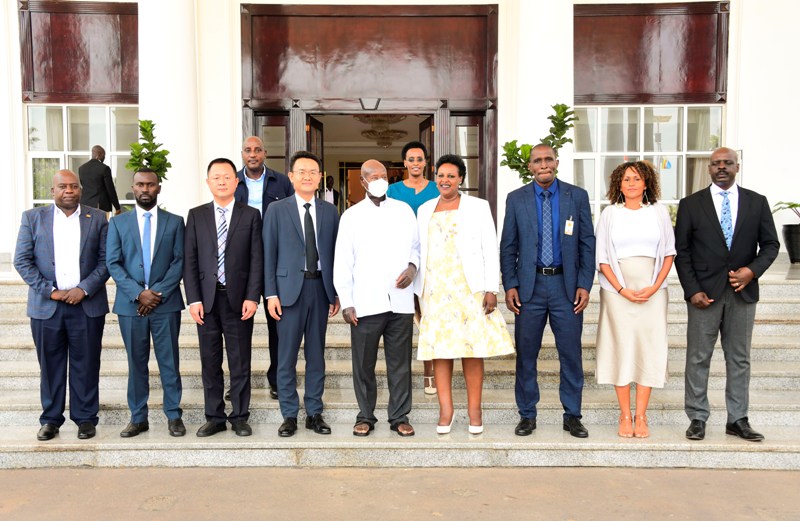Government releases Shs.6.4 trillion for govt expenditure amid inflation decline
The decline, according to Ggoobi is attributed to coordinated monetary and fiscal policy interventions of the Central Bank and the ministry of finance respectively.

The Permanent Secretary ministry of finance Ramadhan Ggoobi has announced a decline in the annual headline inflation from 10.7% in October 2022 to 10.2% in December the same year.
The decline, according to Ggoobi is attributed to coordinated monetary and fiscal policy interventions of the Central Bank and the ministry of finance respectively.
He said, according to projections, the inflation will be going on a downward trend.
The Permanent Secretary, who was at the ministry headquarters releasing the quarter III expenditure releases for the financial year 2022/2023, highlighted that the Central Bank rate increased during the process of bringing down the inflation.
“Interest rates have been going up since the start of the financial year as the Central Bank adopted the monetary policy tightening to bring down inflation. On average, lending rates were 15.53% in July 2022 but have since increased to 18.98% in November 2022,” he said.
Gggoobi also confirmed a 1.6% increase in the economic activities in the country, with the composite index of economic activity averaged at 150.73% in Q2 compared to 148.42% in Q1.
He said the high frequency indicators of economic activity show improvements in the level of the economic activity in Q2 compared to Q1.
Similarly the purchasing managers index showed continuous improvement throughout Q2, being recorded at 52.0 in December 2022.
This according to the PSST was the highest since the start of the year and was mainly due to growth in demand, output, and employment.
This Quarter III of the financial year 2022/23, the ministry of finance planning and economic development has released shs.6, 369.829 billion, which represents 24.5% of the discretionary budget.
According to the ministry, Shs.1, 792.28 billion was directed to wage, Shs.2, 5546.49 billion to non-wage, Shs.1, 999.25 billion to government of Uganda development and Shs.31.80 billion to arrears.
When asked about government institutions delaying to pay workers claiming not to have the money and yet it’s released in time, the PSST noted that treasury releases money according to preparedness of institutions, and it’s why the ministry usually focuses on wage whenever it’s releasing funds.
Ggoobi attributed the delay in paying government workers to poor planning by the institutions, paying off wrong people, something which makes the institutions go silent fearing to reach back to the ministry.
He therefore cautioned accounting officers to ensure that they pay wages, salaries, pensions and gratuity by the 28th of every month.







